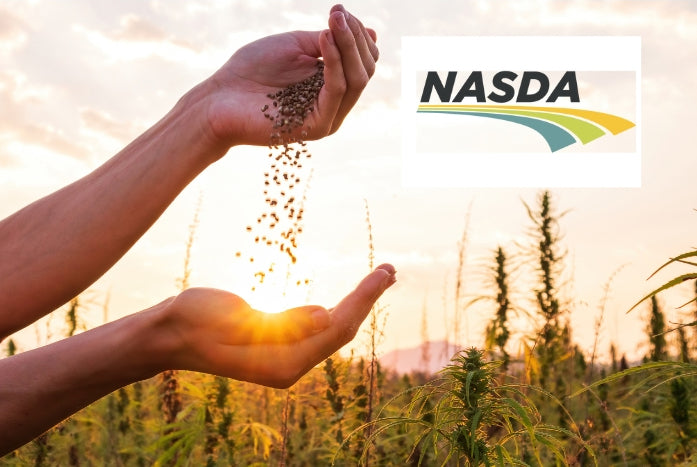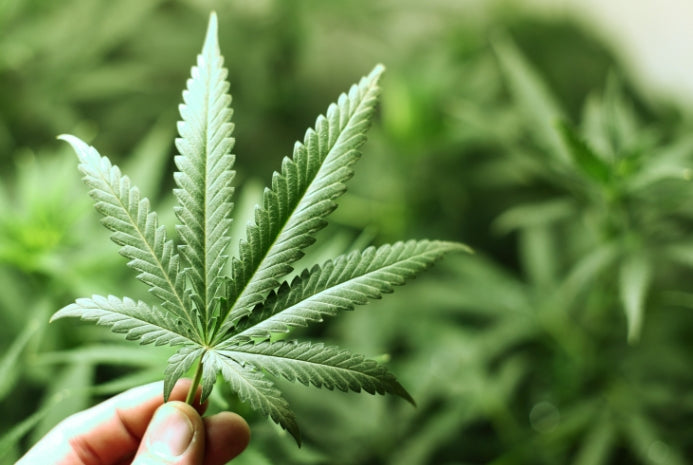The announcement follows the Attorney General’s issuance of cease and desist letters to the organizers and host of an unlicensed cannabis marketplace in the state earlier this month.

The battle for the heart and soul of the cannabis/hemp industries continues, with the latest clash taking place in the tiny but mighty state of Connecticut, where adult-use marijuana is legal for consumers over 21. The issue at hand is not about the legality of specific cannabis products but rather about who is legally allowed to sell them to the general public.
According to multiple media outlets, Connecticut Attorney General William Tong is going after numerous wholesale and retail operators whom his office claims are allegedly selling delta-8 and delta-9 THC products illegally. In the suit, filed on January 9, 2024, Tong charges three wholesalers and four retailers in the state with marketing illegal items containing the intoxicating cannabinoids.
While recreational marijuana is legal for individuals over 21 to purchase and consume, it can only be sold by licensed cannabis retailers and must meet exhaustive packaging and testing requirements. The suit resulted from surprise inspections of vape shops, convenience stores, and gas stations by the Office of the Attorney General and the Department of Consumer Protection. The inspections uncovered illegal product offerings, including marijuana buds, joints, and edible items that mimic youth-oriented snack foods like gummies.
The defendants in the suit include wholesalers Shark Wholesale Corp. in Bridgeport, Star Enterprise 74, LLC, in New Britain, and RZ Smoke, Inc. in Suffield. The four retailers are Greenleaf Farms in New London, Smoker’s Corner in Norwich, Anesthesia Convenience & Smoke in New Haven, and Planet Zaza in East Haven.
In total, Tong’s office filed seven new enforcement actions against the companies for engaging in the distribution and sale of potent, illicit cannabis products in Connecticut, which violates the Connecticut Unfair Trade Practices Act and carries fines of up to $5,000 per violation.
“Cannabis is legal for adults in Connecticut, but it’s not a free-for-all — retailers must be licensed, and legal cannabis products must comply with strict safety standards. These products are designed to deceive consumers into believing they are safe, tested, and regulated – that is false,” Attorney General William Tong said in a statement.
"Cannabis is legal for adults in Connecticut, but it’s not a free-for-all — retailers must be licensed, and legal cannabis products must comply with strict safety standards. These products are designed to deceive consumers into believing they are safe, tested, and regulated – that is false."
- CT Attorney General William Tong
Tong also said that a considerable impetus for the legal action against the businesses originated as a result of 181 calls to the Connecticut Poison Control Center concerning children under the age of six ingesting cannabis edibles since 2021. Most of those incidents resulted in the children going to a healthcare facility for treatment.
Department of Consumer Protection Commissioner Bryan T. Cafferelli said, “Most of the products sold outside of our regulated market are untested and unsafe, especially if consumed by children. Many of these products are packaged in a way that is misleading – signaling to consumers that the product inside is safe when it is not – and, most shamefully, are often sold to people who are underage and may not realize the effects of what they are consuming.”
"Most of the products sold outside of our regulated market are untested and unsafe, especially if consumed by children. Many of these products are packaged in a way that is misleading – signaling to consumers that the product inside is safe when it is not – and, most shamefully, are often sold to people who are underage and may not realize the effects of what they are consuming."
- Department of Consumer Protection Commissioner Bryan T. Cafferelli
The retail businesses charged in the suits face a litany of similar charges ranging from selling several over-the-limit high-THC cannabis edibles to generating unauthorized labels, some of which included fake prescriptions falsely representing the establishments as licensed dispensaries and the items in question as medicinal marijuana.
The wholesalers named in the lawsuits are each accused of providing illicit marijuana products to retailers in the state with deceptive packaging, leading unsuspecting consumers to believe they are buying cannabis product offerings from within Connecticut’s legal, regulated market. Likewise, all three have been charged with supplying retailers with extremely potent items well above legal THC levels and serving sizes and in very child-friendly and overtly tempting packaging.
For example, some of the products sold by Star Enterprise 74 contained THC levels 35 times the legal limit. Similarly, many of Shark’s marijuana items were 15 times higher than permissible, and RZ Smoke’s products had THC levels ten times the legal limit.
Including these most recent charges, the AG’s office has ten pending enforcement actions and has won judgments against four additional retail businesses totaling $40,000 for violations of the Unfair Trade Practices Act over the sale of delta-8 THC products.
“We have multiple active investigations into additional retailers and wholesalers, and we will keep the heat on so long as these dangerous, illegal products are sold,” Tong said.
"We have multiple active investigations into additional retailers and wholesalers, and we will keep the heat on so long as these dangerous, illegal products are sold."
- CT Attorney General William Tong
Lost in all of the chest-thumping and gavel-hammering on the part of Tong and his army of prosecutors and investigators is the fact that a majority of these businesses are selling legal intoxicating hemp derivatives that do comply with all state regulations and guidelines. To the naked eye (even those eyes of seasoned inspectors), many hemp-derived flower and edible products appear to be cannabis. Without extremely specific testing procedures, there is no way to accurately determine whether an item is legal hemp or illegal cannabis.
So, while politically ambitious “law and order” prosecutors like Tong hold press conferences and issue tough-worded statements about cracking down on illegal cannabis, the reality is that a vast majority of hemp-based businesses do comply with state law and do not target children with dangerous and unregulated intoxicating products.
Going after bad actors and illegal activity is the charge of AGs like Tong, and no one is disputing that fact. Persecuting and targeting law-abiding business owners because they choose to sell legal hemp products that cut into corporate cannabis profit margins is not.




























